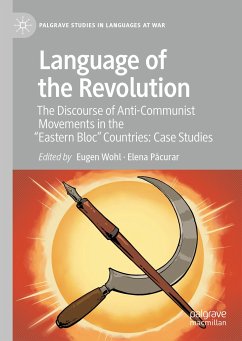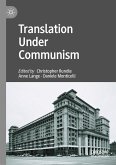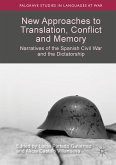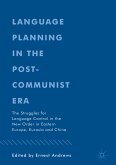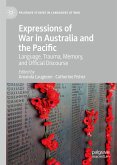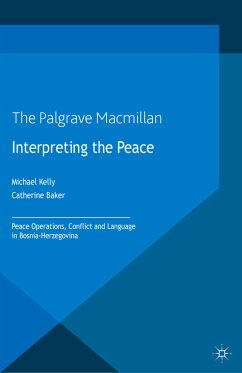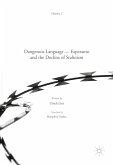This edited book fills a void in the existing research concerning anti-communist movements in Central and Eastern Europe, outlining the linguistic implications of the cultural, social and political metamorphoses brought about by the (change of) regime. The authors included in this volume approach the topic from a variety of perspectives, but, ultimately, focus on language seen as a fundamental tool for simultaneously subjugating and liberating, concealing and revealing truth, discouraging dissidence and fostering revolt. Readers are invited to discover the linguistic implications of the many shapes and forms that the 1989 anti-communist revolutions took. Equally interesting are the investigations of the revolution aftermath, in the first years of transition to democracy. Perceived as a whole throughout the Cold War (1947-1991), the so-called "Eastern Bloc" managed to reveal its heterogeneity, the singularity of each of its comprising states and the multitude of itsinternal contrasts, most vividly perhaps, in the manifold manifestations of the 1989 anti-communist fight. This book will be of interest to academics and researchers from various fields, including history, (socio)linguistics, political studies, and conflict studies.
Eugen Wohl is Lecturer within the Department of Foreign Languages for Specific Purposes, Faculty of Letters, Babe¿-Bolyai University of Cluj, Romania and a theatre critic (IATC member).
Elena Pacurar is Lecturer within the Department of Foreign Languages for Specific Purposes, Faculty of Letters, Babe¿-Bolyai University of Cluj, Romania, where she teaches practical courses of English for Specific Purposes.
Eugen Wohl is Lecturer within the Department of Foreign Languages for Specific Purposes, Faculty of Letters, Babe¿-Bolyai University of Cluj, Romania and a theatre critic (IATC member).
Elena Pacurar is Lecturer within the Department of Foreign Languages for Specific Purposes, Faculty of Letters, Babe¿-Bolyai University of Cluj, Romania, where she teaches practical courses of English for Specific Purposes.
Dieser Download kann aus rechtlichen Gründen nur mit Rechnungsadresse in A, B, BG, CY, CZ, D, DK, EW, E, FIN, F, GR, HR, H, IRL, I, LT, L, LR, M, NL, PL, P, R, S, SLO, SK ausgeliefert werden.
Es gelten unsere Allgemeinen Geschäftsbedingungen: www.buecher.de/agb
Impressum
www.buecher.de ist ein Internetauftritt der buecher.de internetstores GmbH
Geschäftsführung: Monica Sawhney | Roland Kölbl | Günter Hilger
Sitz der Gesellschaft: Batheyer Straße 115 - 117, 58099 Hagen
Postanschrift: Bürgermeister-Wegele-Str. 12, 86167 Augsburg
Amtsgericht Hagen HRB 13257
Steuernummer: 321/5800/1497
USt-IdNr: DE450055826
Bitte wählen Sie Ihr Anliegen aus.
Rechnungen
Retourenschein anfordern
Bestellstatus
Storno

